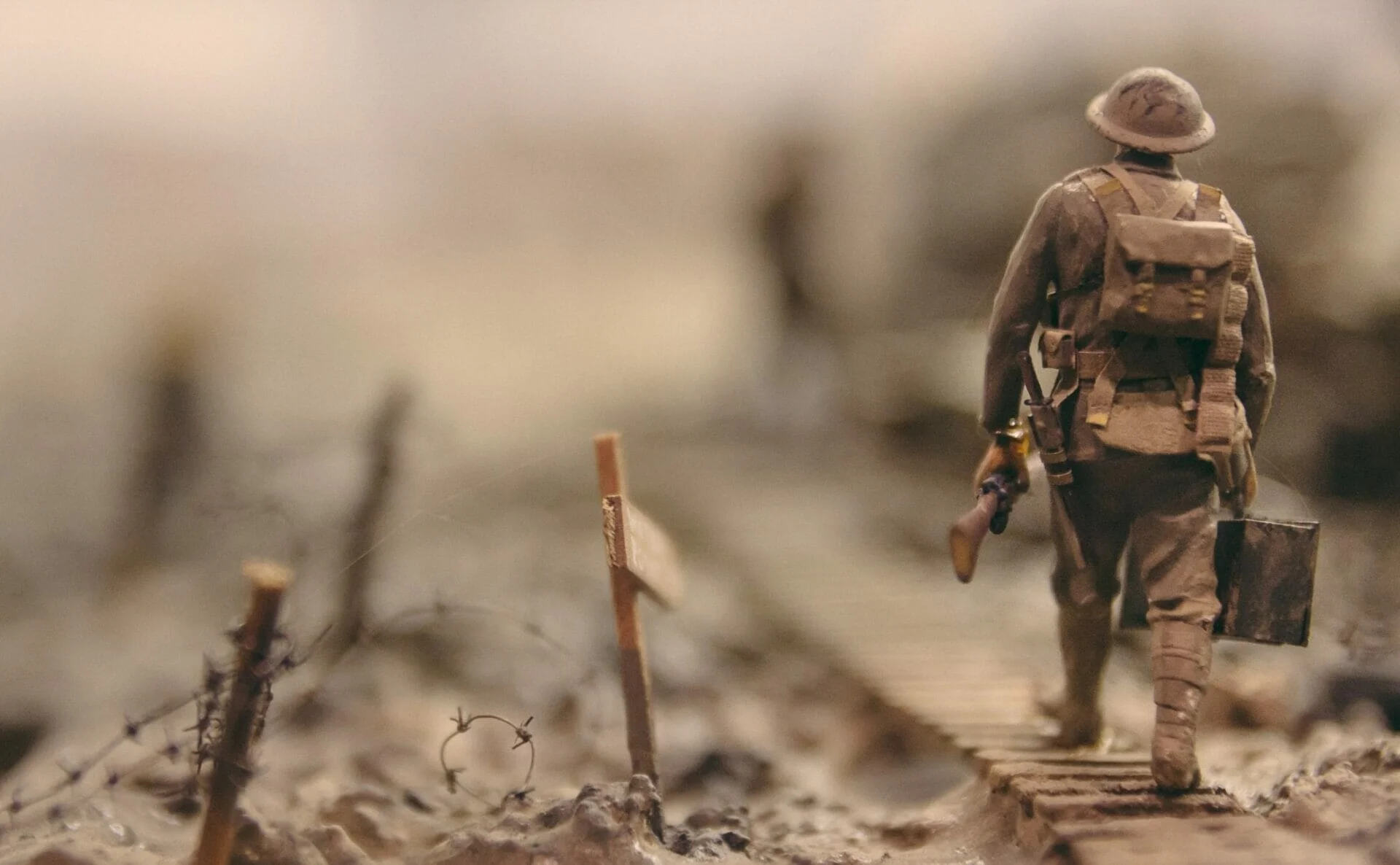
The Great Gatsby | Loving to excess in the Jazz Age
Author
Year
Format
F.Scott Fitzgerald was one of modern literature’s emblematic writers whose novels not only epitomized an age and an era, both in their lifetime and for posterity, but who even invented a name for them as well. The author was twenty-four in 1920 when he published his first novel, This Side of Paradise, followed by The Beautiful and the Damned, and then by one of his well-known works, The Great Gatsby, published in 1925.
Fitzgerald was raised in a middle-class Minnesota family in the American Midwest but lived most of his short, tempestuous, and wildly creative life in New York, Paris, and the French Riviera. His art didn’t reflect his life, nor did his life mirror his art, since the two were one and the same. Dreams of love, social recognition, and financial success in the excess, flamboyance, and post-war hedonism of the early 1920s were the themes of his novels, set in a time that Fitzgerald named ‘the Jazz Age.’ Yet it was love, the central theme of his books, and how young men with limited means chased and attained it or not. And how the past could or couldn’t be recreated.
The excesses of the Roaring Twenties
During the Roaring Twenties or Jazz Age, he was nineteen when he fell madly in love with a Chicago heiress called Ginevra King, and she was smitten by him, but her wealthy parents looked down on Fitzgerald’s limited means and effectively blocked Ginevra’s desires to marry him. Heartbroken, the writer joined the American army in 1917 but was never sent to combat in France. Instead, in Montgomery, Alabama, he met Zelda Sayre, a true Southern debutante, socialite, and painter.
Once his first novel was published and he started earning sufficient money, Zelda married him, and the two embarked on a tempestuous whirl of a marriage that led from New York to Paris and the Riviera, fuelled by artistic brilliance, alcohol, parties, socializing, depression, love, infidelity, and music. All of these came together in The Great Gatsby, now recognized not just as one of the greatest novels of the 20th century but possibly The Great American Novel. The term was coined in 1868 by writer John William De Forest to indicate a novel that embodies the essence of America. Reflecting his times, Fitzgerald’s short story collection was called Tales of the Jazz Age.
Gatsby’s indestructible hope
The novel is narrated by Nick Carraway, a young man from the Midwest who moves to New York in 1922 to work as a bond salesman and rents a house on Long Island’s North Shore, next to a mansion owned by the mysterious Jay Gatsby. We learn gradually that when Gatsby was young, he had a love affair with a girl called Daisy Fay (probably inspired by Fitzgerald’s ex-girlfriend Ginevra King) but then he joined the army in World War I, and their love story ended abruptly.
Daisy swore to wait for him, but she eventually married Tom Buchanan, a rich and successful polo player. On the surface, their marriage seems to be working, but they are an unhappy couple. Tom cheats on Daisy with a mechanic’s wife, Myrtle Wilson, and eventually, Daisy will cheat on Tom with Gatsby.
Gatsby loves Daisy madly and tries in every way to win her back. His huge Long Island mansion, his luxurious cars, and his glitzy parties are just means to impress her. But his mistake is that he has built up an idealized version of Daisy that is not representative of who she is. In that way, he has doomed himself to disappointment because he wants to create a beautiful future by restoring the past. This is what leads Gatsby to say one of his most famous lines:
Can’t repeat the past? Why, of course you can.
Gatsby isn’t content with being Daisy’s lover. He wants her to leave Tom forever and tell him she never loved him. Faced with this choice, Daisy sides with Tom. Her character, superficial and selfish, is very reminiscent of Catherine, the protagonist of Emily Brontë’s Wuthering Heights, who chooses to marry a rich man instead of Heathcliff, the man she loves.
The hypocrisy behind the wealth
At the beginning of the novel, Gatsby is a mysterious character. One of the great enigmas of the book concerns the origins of his wealth, and the reader discovers that Gatsby comes from a little town in North Dakota and has become a millionaire thanks to alcohol smuggling. Gatsby is ashamed of his lower-class upbringing and those who are rich from birth despise him too. Buchanan, for example, calls Gatsby ‘Mr. Nobody from Nowhere,’ and denigrates him for his obscure origins. Although apparently everyone loves Gatsby and is enthusiastic about his parties, the truth is that the upper class will never accept him because he is a nouveau riche. Wealthy New York society admires Gatsby as long as he is successful but abandons him when things go wrong.
Throughout the novel, Gatsby’s true identity remains a legend. Is he an assassin? An Oxford genius? Or the heir of a king? No one knows because Gatsby and the other book characters live in a dreamland where they can be and do what they want at any time. Even Gatsby’s name is false. His real name is James Gatz. The dualism between reality and fiction is, therefore, very strong; it seems impossible to understand the true identity of people.
The loss of a myth
The only person who cares for Gatsby is Nick Carraway, his neighbor and Daisy’s cousin. Trapped between the values of the old world and the easy morality of the new, Nick becomes the perfect narrator for this novel. He is Gatsby’s only true friend, the only person who neither judges nor betrays him. This character trait makes him very similar to Sal Paradise, the narrator of On the Road, who is totally fascinated by his friend, Dean Moriarty.
Everybody goes to Gatsby’s parties, but Nick Carraway is the only one (apart from Gatsby’s father and the servants) who shows up at Gatsby’s funeral. At the end of the novel, Gatsby is shot to death by Wilson, Myrtle’s husband. Wilson believes that it was Gatsby who accidentally ran over Myrtle with his car, but it was actually Daisy. Gatsby took the blame for her.
Gatsby’s death represents for Nick the loss of a myth. He decides to leave the East and go home, but first, he stands in the gardens of Gatsby’s villa, looking at the light across the bay at Daisy’s house. He remembers his friend for the last time.
Gatsby believed in the green light, the orgastic future that year by year recedes before us. It eluded us then, but that’s no matter: tomorrow we will run faster, stretch out our arms farther… and one fine morning…
So we beat on, boats against the current, borne back ceaselessly into the past.
The bleak reality of Gatsby after Myrtle’s death is similar to the Great Depression after the stock market crash. The Americans who partied every day lost all their savings within a very short time, and just like America, Gatsby loses everything.
The Great Gatsby’s legacy
On publication, the book sold poorly and met mixed reviews, but during the Second World War, 155,000 copies were given away free to troops, building up a reputation for it. It has gone on to sell over 30 million copies worldwide, translated into forty-two languages. Its critical acclaim and reception have only increased with each year that passes, and it now sells up to 500,000 copies per annum.
The first movie version of the novel debuted in 1926. It is a lost film because it no longer exists in studio archives or private collections. In 1949 and in 1974, The Great Gatsby appeared on screen again. The most recent version, directed by Baz Luhrmann, is from 2013. It includes actors like Leonardo Di Caprio and Carey Mulligan.
In 1926 The Great Gatsby was performed in a theater by the dramatist Owen Davis. In 1999, John Harbison composed an operatic treatment of the novel, which has also been revised for ballet performances. Fitzgerald’s book has also inspired multiple TV series (Robert Markowitz, in 2000, directed the most recent one), radio episodes, and video games.
Tag







